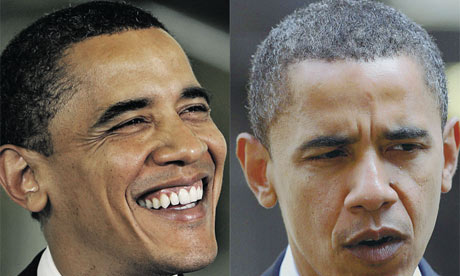 The United States, home to the world's strongest economy and technological innovation, is also home to more than 37 million people living below the poverty line. Any U.S. family of four whose annual income in 2006 was less than $20,444 is considered poor by the federal government's standards. This makes up 12.6% of all Americans, and more than 17% of American children. Some of the people in this unfortunate group are temporarily stuck in tough economic times, perhaps due to job loss, divorce, etc. However, other people are permanently stuck in their poor economic situation. 3 million of the poorest Americans are employed full time. Although these people work hard and long hours many are paid only minimum wage, which is not enough to support a comfortable living for a family. Before 2007 the minimum wage had not been raised from $5.15 in more than a decade, not keeping up with inflation and cost of living, which enraged many people. This is why there was great support for Democratic efforts to raise the minimum wage to $7.25, which was signed into law by President Bush along with a bill for funding in Iraq. There is still pressure to raise the minimum wage even further. The increase would raise the take-home pay of millions of Americans, and many believe this would allow full-time workers who earn minimum wage to rise above the poverty threshold, with the help of the Food Stamp Program and the Earned Income Tax Credit (EITC). Supporters argue that this would overall improve the economy since there will be more people with more money to spend, ensuring that businesses would profit. This would counteract the negative effect that businesses would have to spend more to pay employees. They also say that it is unecessary to offer businesses further tax cuts, since they already have had generous tax cuts and more would add to the goverment's deficit. There are of course opponents to an increased minimum wage. These people argue that an increase is counterproductive since it affects few people, many of whome are teens, not families in poverty. Instead businesses will suffer because the cost of doing business will go up, along with prices and job cuts. They recommend leaving the market to let supply and demand determine wages, and use the EITC to combat poverty instead.
The United States, home to the world's strongest economy and technological innovation, is also home to more than 37 million people living below the poverty line. Any U.S. family of four whose annual income in 2006 was less than $20,444 is considered poor by the federal government's standards. This makes up 12.6% of all Americans, and more than 17% of American children. Some of the people in this unfortunate group are temporarily stuck in tough economic times, perhaps due to job loss, divorce, etc. However, other people are permanently stuck in their poor economic situation. 3 million of the poorest Americans are employed full time. Although these people work hard and long hours many are paid only minimum wage, which is not enough to support a comfortable living for a family. Before 2007 the minimum wage had not been raised from $5.15 in more than a decade, not keeping up with inflation and cost of living, which enraged many people. This is why there was great support for Democratic efforts to raise the minimum wage to $7.25, which was signed into law by President Bush along with a bill for funding in Iraq. There is still pressure to raise the minimum wage even further. The increase would raise the take-home pay of millions of Americans, and many believe this would allow full-time workers who earn minimum wage to rise above the poverty threshold, with the help of the Food Stamp Program and the Earned Income Tax Credit (EITC). Supporters argue that this would overall improve the economy since there will be more people with more money to spend, ensuring that businesses would profit. This would counteract the negative effect that businesses would have to spend more to pay employees. They also say that it is unecessary to offer businesses further tax cuts, since they already have had generous tax cuts and more would add to the goverment's deficit. There are of course opponents to an increased minimum wage. These people argue that an increase is counterproductive since it affects few people, many of whome are teens, not families in poverty. Instead businesses will suffer because the cost of doing business will go up, along with prices and job cuts. They recommend leaving the market to let supply and demand determine wages, and use the EITC to combat poverty instead.It is utterly unjust that good, hard-working people are forced to live below the poverty line. Nobody who works 40 to 60 hour work weeks deserves to live in such dreary conditions. Many people blame the poor for being lazy, but I disagree. People working minimum wage jobs have to work long and hard, and often times in a difficult environment, just to scrape a living for their family. This is by no means lazy. I believe that one of the best ways to beat this cycle of misfortune is to raise the minimum wage. Doing so would raise the standard of living for the hard-working lower class, so that eventually they can lift themselves out by their bootstraps. Any small improvement we can make in standard of living in one generation can benefit the next generation ten fold. If a parent making minimum wage is given the chance to earn more, they can maybe send their children off to a better school and give them better experience so they can succeed. I think that the economy would be only positivly affected by such a measure. Most businesses can afford to give their workers the little bit more they deserve, especially giant corporations like Walmart and McDonalds. Besides, if minimum wage increased at the same rate as CEO salary increases, minimum wage would be over $23. CEOs didn't need or deserve what they have gotten. I think its time we closed the income gap and give the lowest earning workers the raise they deserve.
Minnesota's Senator Amy Klobuchar shares my opinion on this topic. Read this article to learn more: Senator Amy Klobuchar Delivers Senate Floor Speech on the Need for an Increased Minimum Wage
Want to learn more about other jobs and welfare Issues? See these student blogs-
Joe's Blog: Issue #1: All Things Being Unequal
Jon's Blog: Issue #2: Putting Welfare to Work






 Summary: After six weeks as president Obama already has more gray hair. The stresses of our economy and wars, and the 750 days since he began campaigning for president have caused this. At one point during the election battle it came so rapidly people accused him of dying it (his long time barber denies this). Scientists believe the buildup of hydrogen peroxide blocks pigment from reaching hair follicles (high stress affects the follicles). Former president Bush blamed his gray on his teen daughters, not the presidency. Obama's barber says that he isn't much grayer Inaguration Day saying, "I don't think we should worry about it that much. It hasn't affected his basketball game. He can still shoot some hoops."
Summary: After six weeks as president Obama already has more gray hair. The stresses of our economy and wars, and the 750 days since he began campaigning for president have caused this. At one point during the election battle it came so rapidly people accused him of dying it (his long time barber denies this). Scientists believe the buildup of hydrogen peroxide blocks pigment from reaching hair follicles (high stress affects the follicles). Former president Bush blamed his gray on his teen daughters, not the presidency. Obama's barber says that he isn't much grayer Inaguration Day saying, "I don't think we should worry about it that much. It hasn't affected his basketball game. He can still shoot some hoops." 
 I don't think Obama could have chosen a more worthy historical icon than Lincoln to try to bring our country together. In my opinion, Lincoln was our greatest president who made the biggest impact on our country. He not only reunited the north and south but also ended the most horrific piece of our past, slavery. It may be that Obama is setting the bar high with comparisons between the two, but I think that by doing this he is giving people hope, and he is setting a precident for himself to be the greatest president he can be. Hope has been the biggest message in his campaign. I wonder how Lincoln would feel, and what he would say, if he could see how far our nation has come since he ended slavery. He never could have imagined that in less that 200yrs a black man would be taking the oath of office on his bible, and that across a grand marble monument to Lincoln himself watched across the mall. I think he would be suprised at the success of the civil rights movement, and honored that all of this success was ultimately due to him. The simularities between Obama and Lincoln are incredible. Without one we wouldn't have the other. I hope Americans and politicians listen to Obama and follow in old honest Abe's footsteps. If history is right, I think following in those footsteps will lead us out of anything, even this recession.
I don't think Obama could have chosen a more worthy historical icon than Lincoln to try to bring our country together. In my opinion, Lincoln was our greatest president who made the biggest impact on our country. He not only reunited the north and south but also ended the most horrific piece of our past, slavery. It may be that Obama is setting the bar high with comparisons between the two, but I think that by doing this he is giving people hope, and he is setting a precident for himself to be the greatest president he can be. Hope has been the biggest message in his campaign. I wonder how Lincoln would feel, and what he would say, if he could see how far our nation has come since he ended slavery. He never could have imagined that in less that 200yrs a black man would be taking the oath of office on his bible, and that across a grand marble monument to Lincoln himself watched across the mall. I think he would be suprised at the success of the civil rights movement, and honored that all of this success was ultimately due to him. The simularities between Obama and Lincoln are incredible. Without one we wouldn't have the other. I hope Americans and politicians listen to Obama and follow in old honest Abe's footsteps. If history is right, I think following in those footsteps will lead us out of anything, even this recession.